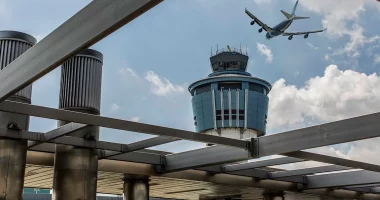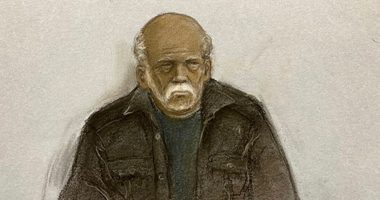Share this @internewscast.com

Boris Johnson has admitted the UK government needs “to do more” to tackle the cost of living crunch, after chancellor Rishi Sunak’s mini-Budget was widely criticised for failing to address the scale of the crisis.
Sunak, lauded for his handling of the Covid-19 pandemic, woke on Thursday to negative newspaper headlines about his Spring Statement and accusations that he was part of a remote elite, out of touch with ordinary people.
According to the Office for Budget Responsibility, Britons will in 2022-23 experience the biggest fall in living standards since records began in the 1950s. The UK fiscal watchdog said the overall tax burden was continuing to rise.
Many Conservative MPs believe Sunak did what he could in testing circumstances to address the cost of living crisis, but as the dust settled on the Spring Statement there was a grim acceptance he would have to do more.
The prime minister, in an LBC interview, said the government had done “a huge amount to address the increase in the cost of living” but “as we go forward, we need to do more”.
Sunak found his personal wealth juxtaposed with research by the Resolution Foundation think-tank showing the chancellor had left 1.3mn people, including 500,000 children, at risk of falling below the poverty line.
The chancellor’s revelation in a BBC interview that “we all have different breads in my house” was portrayed by the Liberal Democrats as a “let them eat cake” moment for Sunak.
Shadow chancellor Rachel Reeves said Sunak’s Spring Statement had been “a disaster” for ordinary people.
The chancellor’s enemies, not all of them opposition party MPs, believe Sunak may at last be vulnerable. “He’s gone from being the golden boy to the tin man overnight,” said one Conservative MP.
Downing Street insisted that a new rift had not opened up between Johnson and Sunak, and that the prime minister endorsed the chancellor’s strategy and the help he offered to mitigate cost of living pressures stemming from surging inflation and spiralling energy bills.
One ally of Johnson said he recognised the need to hold back some money to boost Britain’s long-term prosperity, whether investing in new energy schemes or boosting innovation.
Sunak, in a tetchy round of broadcast interviews, hinted at a bigger Treasury intervention in the autumn, when the UK’s energy price cap is projected to rise from £1,277 to about £2,800.
The chancellor’s Spring Statement offered help to Britons via a £5bn one-off cut to fuel duty, and a £6bn national insurance reduction for 30mn workers. He also promised a £5bn income tax cut in 2024 — the most likely year of the next general election.
The package elicited two big questions: was it enough and was it fair? Many Tory MPs, including Brexit opportunities minister Jacob Rees-Mogg, wanted him to go further in cutting taxes, including scrapping a planned national insurance rise.
Richard Drax, a Tory grandee, told the House of Commons on Thursday: “We have deep pockets of deprivation and poverty, and I fear . . . the generous moves by the chancellor and the tinkering that he has done haven’t gone far enough.”
Sunak said he cannot help everyone, while his allies bemoaned how “Covid economics” have distorted expectations of what any chancellor can do to alleviate hardship.
The fact that Sunak spent £400bn on easing the shock of Covid not only leaves him having to fill a fiscal hole with higher taxes, but it has raised expectations of how much he should spend now.
One former minister said there was unspoken calculation behind Sunak’s Spring Statement that spending more money on higher welfare benefits or public sector wages could exacerbate inflation, which the OBR reckons is heading to 9 per cent towards the end of 2022. Consumer price inflation hit 6.2 per cent in February.
“People have to take some of the pain,” added the ex-minister. “The alternative is we get into a push cycle, chasing inflation with more spending and higher wages.”
A key accusation against Sunak was that the money he dispensed in the mini-Budget was not fairly distributed — a point that he had to deal with repeatedly in his broadcast interviews.
The chancellor was asked what help was available to those at the bottom of the income scale: people on benefits, unable to work and without a car. Sunak struggled to provide answers.
The chancellor has made it a priority to encourage Britons into employment and better paid jobs, but such an approach leaves those unable to work facing grim choices as they try to make ends meet.
Tory MP Peter Aldous said the government had to rethink its “more work is always the answer” approach, especially given the UK is close to full employment.
One veteran Conservative MP said there was another reason why Sunak and Johnson had made the choices they did. “Helping the working poor saves Tory votes,” added the MP. “Helping those purely on benefits doesn’t.”
Sunak’s decision not to increase benefits in the Spring Statement brought a renewed focus on his personal wealth and whether his background as a former Goldman Sachs analyst and hedge fund partner left him blind to the suffering of the poorest in society.
Sunak’s supporters are exasperated by such scrutiny, pointing out the chancellor was “not born rich” and was determined to stand by Britons through testing economic times.
“We all know what’s going on here,” said one ally of Sunak. “They built him up to tear him down.”
Source: This post first appeared on Duk News














